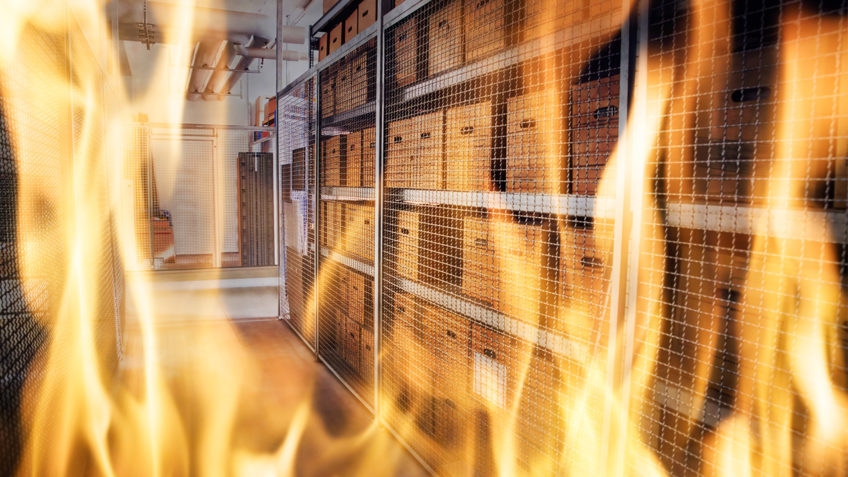
A Practical Approach to Handling a Fire at Your Business
According to the U.S. Fire Administration’s (USFA) National Fire Incident Reporting System (NFIRS), there were 111,000 nonresidential building fires in 2017, resulting in an estimated $2,719,400 in losses. In that same reports, a 10 year trend from 2008-2017 shows a 20% increase in fires and a 30% increase in dollar loss. It is clear to see that a business fire not only affects your day-to-day operations, it also greatly affects your wallet. On the bright side, the numbers also show that approximately 60% of all U.S.-based businesses continue to operate after a disastrous fire. With careful planning, safety and insurance policies, you too can ensure your business is prepared if a fire strikes.
Tips for a Business Fire
While it is a no-brainer to fireproof our homes, it is rare that business management brings those same techniques into the workplace. Unfortunately, even those businesses who take the necessary fireproofing steps are susceptible to fires. How management handles such a disaster is oftentimes crucial to the success of the business moving forward. Follow these steps to help make sure you are making the correct decisions:
- Damage Control
Once first responders have extinguished the fire and the smoke has cleared, management must take any necessary steps to mitigate further damage. This includes turning off utilities, securing company space, arranging for security, etc. If the business owner i.e. the policyholder does not take steps to mitigate the loss of damage, insurance carriers can deny coverage for any additional damage.
- Consult with Experts
A business can get out ahead of a fire by speaking with an expert to see what steps they can take to speed up the process. Usually this involves requesting their own fire report, obtaining building codes and inspections and sometimes even hiring their own public adjuster. Many businesses wrongly assume their insurance company will handle all the details but unfortunately, this is not always the case.
- Document Loss
Although the scene of a fire is often a chaotic place, it is important to document everything from loss, to expenses during recovery, and even contacts you have spoken to throughout the process.
- Contact Your Insurance Company
It goes without saying that the policyholder must contact the insurance company within a reasonable amount of time of the fire. It is important to note that the initial contact is just to inform the insurance company that damage occurred and you do not need to sign any agreements at this time. Make sure to review your policy and see what you are covered for. With policies that extend to business income, you may be entitled to request an advance for immediate expenses or to help minimize the loss of operations.
- Understanding Fire Claims
Every fire is different but what is often overlooked is the smoke and water damages that can cause challenges further down the road. It is important to make sure that your insurance company’s representative looks for damage beyond what is seen on the surface, which can lead to a mold growth or a weakened building.
Unfortunately, fire season is upon us and many businesses may have to go through these steps to get operations back up and running. Following these steps and remaining calm will play a critical role in making the right decisions. At Colony West, we understand that every fire claim is unique. If you have any questions regarding what is best for you or if you’d like to discuss additional policy extensions to prevent future headaches, contact us today.
